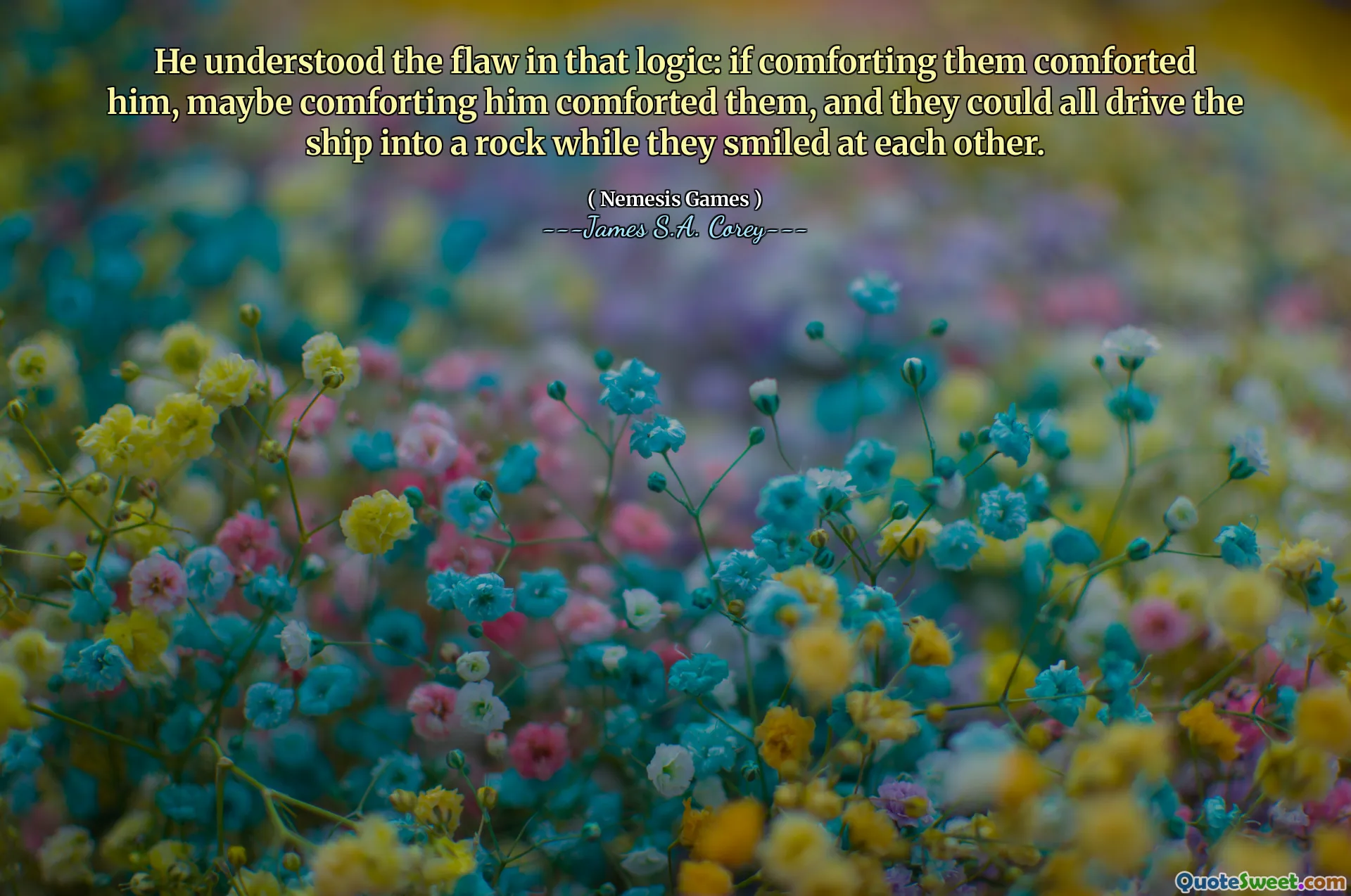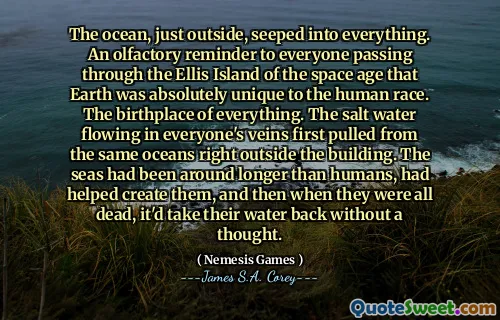
He understood the flaw in that logic: if comforting them comforted him, maybe comforting him comforted them, and they could all drive the ship into a rock while they smiled at each other.
This quote from James S.A. Corey's 'Nemesis Games' highlights a profound human truth about the often-hidden vulnerabilities and blind spots in our interpersonal relationships. It calls into question the assumptions we make about mutual comfort and the underlying motivations driving our actions in social contexts. The notion that offering solace might serve primarily as self-comfort suggests a complex interplay between genuine empathy and subconscious self-interest. The analogy of steering a ship into a rock while smiling hints at the danger of collective denial—where individuals, perhaps fearful of confronting reality or their own fears, continue to engage in comforting behaviors that are ultimately destructive. This raises important questions about authenticity in relationships: when does caring become complacency? When do well-meaning actions mask neglect or avoidance? The quote emphasizes that sometimes, surface harmony covers unresolved issues, which can lead to catastrophic consequences if left unchecked. It reminds us that empathy and support need to be rooted in honesty and self-awareness, not just the desire to avoid discomfort. In a broader sense, it invites reflection on leadership, community, and the importance of confronting uncomfortable truths collectively, rather than hiding behind smiles or superficial reassurances. Only through honest, often uncomfortable conversations can a group navigate treacherous waters without blindly steering toward destruction. It’s a powerful reminder that being aware of our motivations and the potential hidden costs of our actions is key to genuine progress and safety—whether on personal, communal, or literal journeys through life's challenges.








